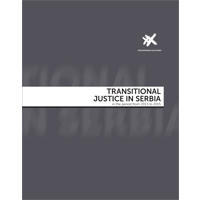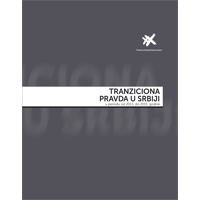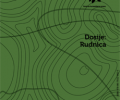TRANSITIONAL JUSTICE IN SERBIA in the period from 2013 to 2015
 The aim of the report „Transitional Justice in Serbia in the period from 2013 to 2015“ is to inform the domestic and international publics on the progress of the process of establishing transitional justice in Serbia.
The aim of the report „Transitional Justice in Serbia in the period from 2013 to 2015“ is to inform the domestic and international publics on the progress of the process of establishing transitional justice in Serbia.
The multiannual monitoring of progress in establishing transitional justice shows that Serbia is making very slow progress in applying transitional justice mechanisms regarding the human rights violations during the armed conflicts of the 1990s. The key obstacle is the lack of political will for a comprehensive, honest and institutionalized confrontation with the legacy of the 1990s war. In contradiction to the declarated dedication of state representatives to the reconciliation processes in the region of former Yugoslavia, concrete measures in establishing transitional justice are mainly lacking or do not receive sufficient support from the political actors. Rarely applied mechanisms, like war crimes trials and searches for the missing persons, are the result of requests made by the international community, and are in practice under the strong influence of the political authorities and their ideologies. The real relationship of the representatives of the political elite towards the need to establish justice regarding the crimes of the 1990s is probably best illustrated by their public support to convicted war crimes perpetrators and individuals about whom there are serious indications of involvement in war crimes.
War crimes trials were characterised by multiple, long-standing problems that have continued to hinder establishing criminal justice for crimes in the past. Numerous legal and institutional barriers have impeded victims’ effective access to material reparations and Serbian institutions have not been committed to fulfilling their obligation to make reparations to victims in accordance with international standards. Serbia continues to be a country hosting a large number of refugees and displaced persons. When it comes to symbolic reparations, ethnically biased commemorations of events from the 1990s have prevailed, as well as denial of crimes and the absence of efforts to build and nurture a culture of remembrance for the victims. Most of the initiatives and activities aimed at truth-seeking and truth-telling about past human rights violations have come from non-governmental organisations. The search for missing persons is progressing slowly, owing to the absence of an adequate legal framework and the inaction by the competent authority. The military and police archives, which contain materials that can assist in determining the facts about the armed conflicts of the 1990s and identifying the locations of grave sites, were inaccessible to interested individuals, non-governmental organisations and the general public. Thus far, Serbia has not undertaken the institutional reforms which would introduce a policy of screening the wartime backgrounds of candidates for security sector jobs and political office (vetting), and removing from public office persons who were involved in human rights violations during the armed conflicts (lustration). Transitional justice themes are now included into higher education curricula, although to a less than significant degree, but are altogether absent from the teaching/learning materials designed for secondary and primary school pupils.
Download the report „Transitional Justice in Serbia in the period from 2013 to 2015“ here.







